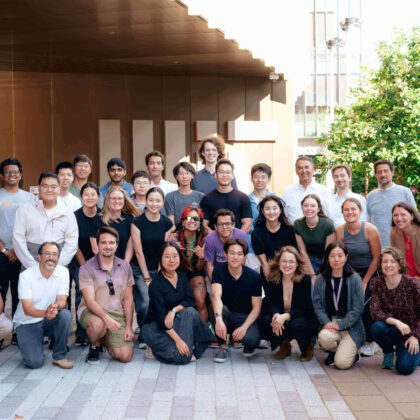
Research
Innovative computational solutions require collaboration, expertise, and an interdisciplinary approach. Our research advances discovery across science, technology, and society.
Research Areas
Computation plays a critical role in the design and optimization of engineering systems. CCSE researchers develop new formulations, methods, and algorithms that advance next-generation design tools.
Research areas include:
- Addressing the computational cost of design loops
- Searching high-dimensional parameter spaces
- Solving complex inverse problems in high dimensional spaces
Our research is grounded in numerical analysis and computational mathematics.
Research areas include:
- Theoretical analysis of complexity and convergence
- Developing fast, scalable numerical approximations and algorithmic implementations for solving computational problems with broad applicability
As society becomes more complex, so do science and engineering challenges—challenges that outstrip available data and standard modeling capabilities. That’s where machine learning (ML) comes in. CCSE research explores connections between ML approaches and scientific computing, enabling predictions and solutions that advance scientific innovation.
Research areas include:
- Developing new methods for inverse problems, data assimilation, and broader problems in computational statistics
- Creating predictive “digital twins” of physical systems
- Applying large-scale optimization, numerical algorithms, and ML tools to predictive modeling and high-dimensional statistics
- Advancing uncertainty quantification (UQ) to improve computational predictions in fields from engineering to climate science
- Combining applied mathematics, statistics, and computational simulation—including foundations in approximation theory, error estimation, stochastic modeling, and Monte Carlo methods—to support decision-making under uncertainty
Advances in hardware architectures and high-performance computing (HPC) demand the development of new algorithms. These methods maximize the capabilities of modern computing systems and accelerate scientific discovery. Here, computational tools refer both to the mathematical formulations that define an approach and to their software implementations for specific architectures.
Research areas include:
- Developing novel algorithms for advanced hardware architectures and high-performance computing resources
- Developing open-source scientific software toolchains that accelerate scientific discovery and technical innovation
Computational modeling is often described as the “third paradigm” of scientific discovery, complementing theory and experimentation. CCSE researchers use computational modeling to gain new scientific insights and solve outstanding problems with societal impact.
Research areas include:
- Formulating mathematical models, including data-driven approaches, for describing the physical phenomena or engineering processes of interest
- Formulating multi-resolution models that span the continuum, molecular and quantum scales
- Creating advanced numerical solution or simulation methodologies tailored to these models
- Representing and visualizing complex geometries
Our Ideas in Action
CCSE Community
